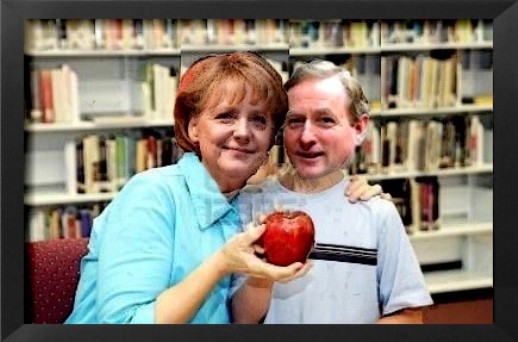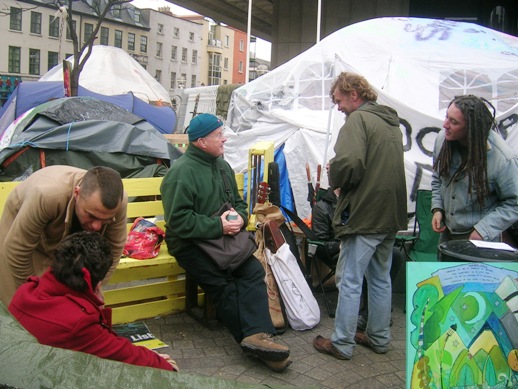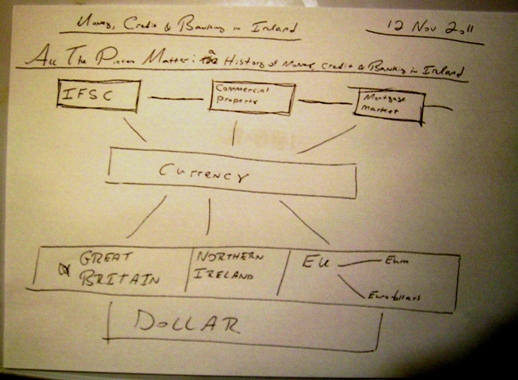
This was two weeks ago:
The Minister for Trade and Development Jan O’Sullivan TD today (Tuesday 8 November 2011) announced the opening of a new Enterprise Ireland office in Johannesburg in South Africa, along with a number of new contracts and business expansions by Irish companies operating in the region. The announcements were made during this week’s Enterprise Ireland trade mission to South Africa and they come on foot of a strong export performance in 2010 in which Irish exports to South Africa grew by 23% on the previous year. These announcements confirm the significant potential for Irish companies to increase the scale of Irish exports to South Africa and the wider Sub-Saharan region. [Enterprise Ireland]
This was Fine Gael councilor Darren Scully yesterday:
The Mayor of Naas in Co Kildare [Fine Gael councilor Darren Scully] has said he will no longer represent those of African origin in the town.
He said he made the decision based on what he described as the “aggressive” attitude he experienced when representations were made to him by black Africans.
Speaking to KFM, Darren Scully said he would refer any black African seeking assistance from him to another of his council colleagues.
“I have been met with aggressiveness and bad manners,” he said. “I have also been met with the race card, (with people saying) ‘Oh yeah, you will help white people, but you don’t help black people’.
“So after a while I made a decision that I was just not going to take on representations from black Africans, that I would be very courteous to them and I would pass on their query to other public representatives.”
So far, there has been no comment from Enda Kenny, and Darren Scully remains an active and valued member of Fine Gael.
Exports from Ireland to South Africa alone account for almost one billion euro a year.
During the trade mission two weeks ago, the following announcements were made:
Clarigen, the HR software solutions company, announced a €150,000 contract with Silburn Drake, the Pretoria based human resources organization that will now be rolling out the Clarigen HR management solution to their client base within the South African market;
Azotel, the Cork based technology company, announced a new contract with Wirulink Pty Ltd through Multisource, its SA distributor. The value of contracts through Multisource is in the region of €3m over the next two years. Azotel also launched its Broadband Franchise model for Africa during the trade mission.
TERMINALFOUR, the Dublin based leading Web Content Management (WCM) company, announced that it has won its first African client - South Africa’s Rhodes University. TERMINALFOUR’s WCM solution will play a key role in the creation of Rhodes University’s new website which is at the heart of all its online communication activities;
Bannow Exports, based in Gorey, Co Wexford announced the transfer of its technology to South Africa with the establishment of Bannow Africa to provide package sewage treatment plants and environmental protection equipment. The Bannow Africa product mix is ideally suited to the South Africa market.











